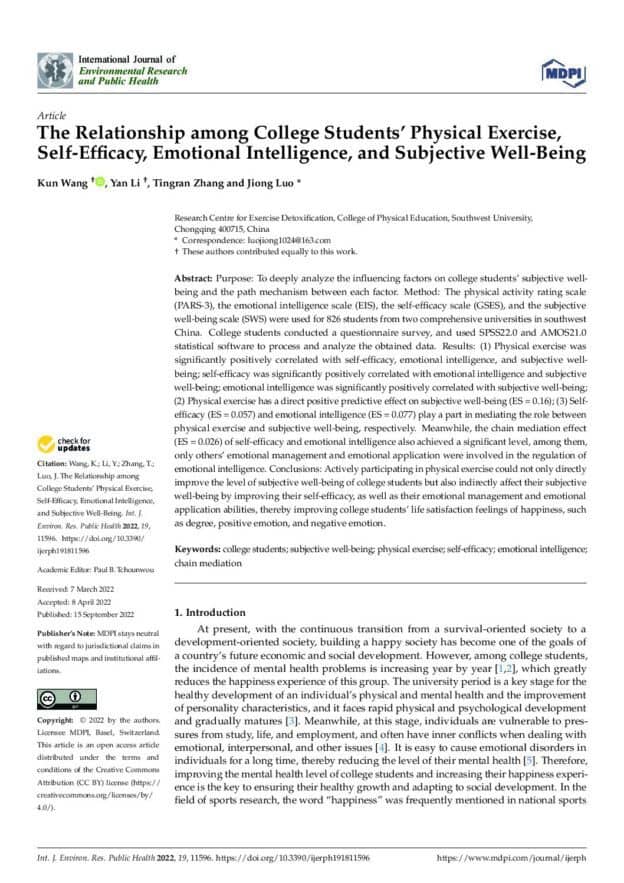Abstract
Purpose: To deeply analyze the influencing factors on college students’ subjective well-being and the path mechanism between each factor. Method: The physical activity rating scale (PARS-3), the emotional intelligence scale (EIS), the self-efficacy scale (GSES), and the subjective well-being scale (SWS) were used for 826 students from two comprehensive universities in southwest China. College students conducted a questionnaire survey, and used SPSS22.0 and AMOS21.0 statistical software to process and analyze the obtained data.
Results: (1) Physical exercise was significantly positively correlated with self-efficacy, emotional intelligence, and subjective well-being; self-efficacy was significantly positively correlated with emotional intelligence and subjective well-being; emotional intelligence was significantly positively correlated with subjective well-being.
(2) Physical exercise has a direct positive predictive effect on subjective well-being (ES = 0.16); (3) Self-efficacy (ES = 0.057) and emotional intelligence (ES = 0.077) play a part in mediating the role between physical exercise and subjective well-being, respectively. Meanwhile, the chain mediation effect (ES = 0.026) of self-efficacy and emotional intelligence also achieved a significant level, among them, only others’ emotional management and emotional application were involved in the regulation of emotional intelligence. Conclusions: Actively participating in physical exercise could not only directly improve the level of subjective well-being of college students but also indirectly affect their subjective well-being by improving their self-efficacy, as well as their emotional management and emotional application abilities, thereby improving college students’ life satisfaction feelings of happiness, such as degree, positive emotion, and negative emotion.



Responses